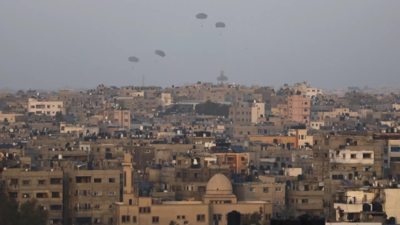
The decision by Israel to attend the talks marks a significant development in the diplomatic efforts to end the hostilities that have resulted in a high number of casualties and widespread destruction. According to sources close to the negotiations, the talks will involve key players, including U.S. officials and representatives from various international organizations, who have been working tirelessly behind the scenes to broker a deal that would bring an end to the violence.
While the details of the negotiations remain confidential, it is understood that the discussions will focus on establishing a ceasefire as the immediate priority. The release of hostages held by militant groups has also been identified as a critical issue to be addressed during the talks. Mediators have emphasized the importance of a balanced approach, seeking to ensure that both sides agree to terms that could pave the way for a more sustained peace process in the region.
The involvement of the United States in these talks has been a crucial factor, with American diplomats playing a leading role in pushing for the negotiations. Washington has been in close contact with both Israeli officials and representatives of the Palestinian authorities, advocating for an end to the hostilities and the commencement of dialogue. U.S. Secretary of State Antony Blinken has reportedly been in constant communication with leaders in the region, underscoring the urgency of finding a resolution to the conflict.
The humanitarian situation in the conflict zone has reached alarming levels, with thousands of civilians caught in the crossfire. International aid organizations have raised concerns about the limited access to essential supplies, including food, water, and medical care. The potential for a ceasefire offers a glimmer of hope that humanitarian aid can be delivered to those in desperate need.
Diplomatic sources have indicated that while the road to a lasting peace remains fraught with challenges, the willingness of both sides to come to the table is a positive sign. However, skepticism remains high, given the deep-seated mistrust between the parties involved. Previous attempts at brokering a ceasefire have collapsed, often leading to a resumption of violence shortly after negotiations began.
The involvement of multiple international mediators is seen as a strategic move to increase the chances of success in these talks. Nations and organizations with longstanding ties to both Israel and Palestine have been invited to participate, offering their expertise and influence in guiding the discussions towards a constructive outcome. The goal is to create a framework that addresses both the immediate need for a ceasefire and the longer-term issues that have fueled the conflict.
As the world watches closely, the outcome of these talks could have significant implications for the region's future. A successful ceasefire would not only save lives but could also serve as a stepping stone toward a broader peace agreement. However, failure to reach an agreement could lead to further escalation, deepening the humanitarian crisis and prolonging the suffering of civilians on both sides.
The stakes are high, and the pressure is on for all parties involved to find common ground. The next few days will be critical in determining whether these talks can lead to a breakthrough or if the region will continue to grapple with the devastating consequences of ongoing conflict. The international community remains hopeful that diplomacy will prevail, but the challenges ahead are formidable.
Topics
World
